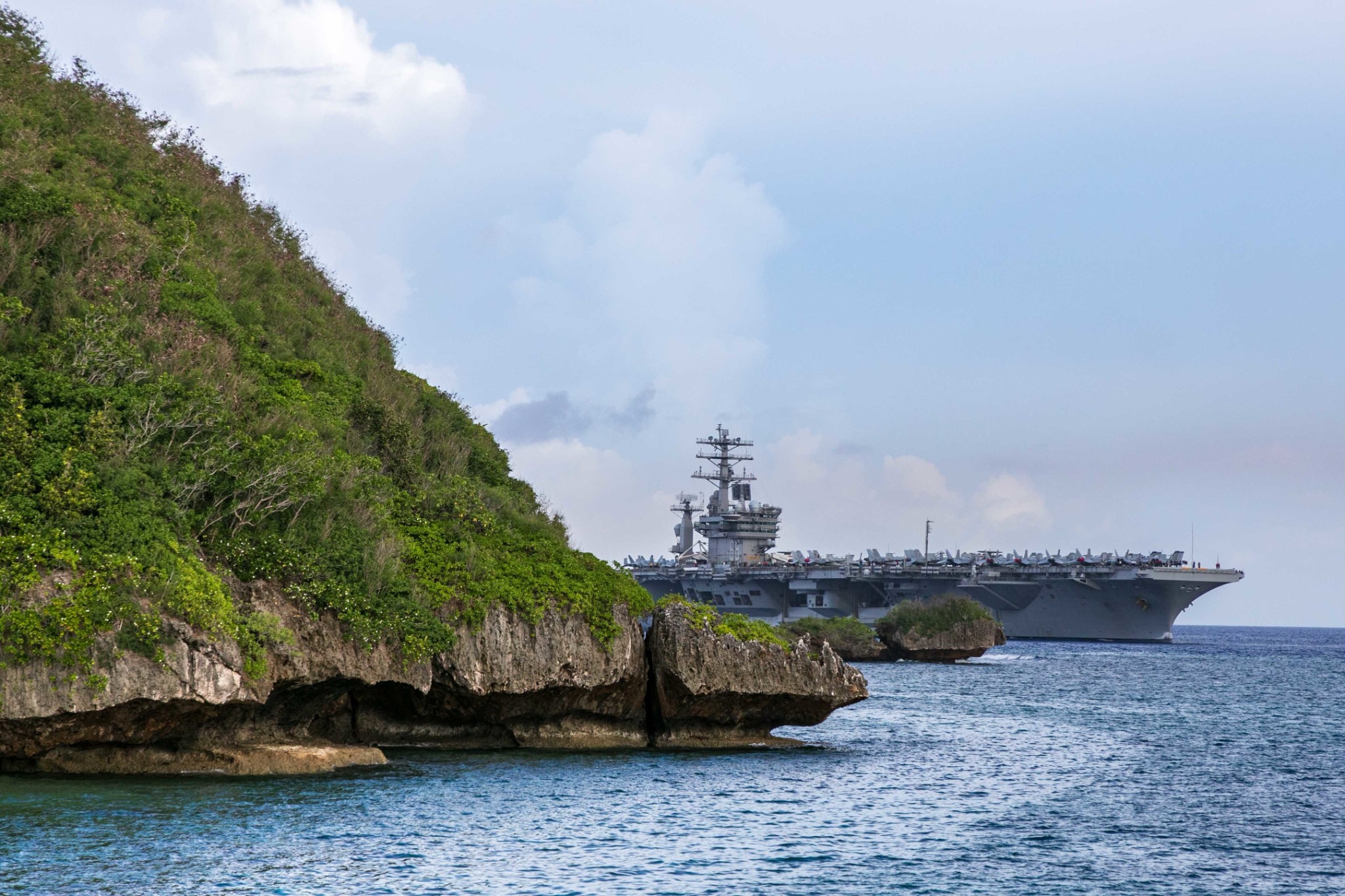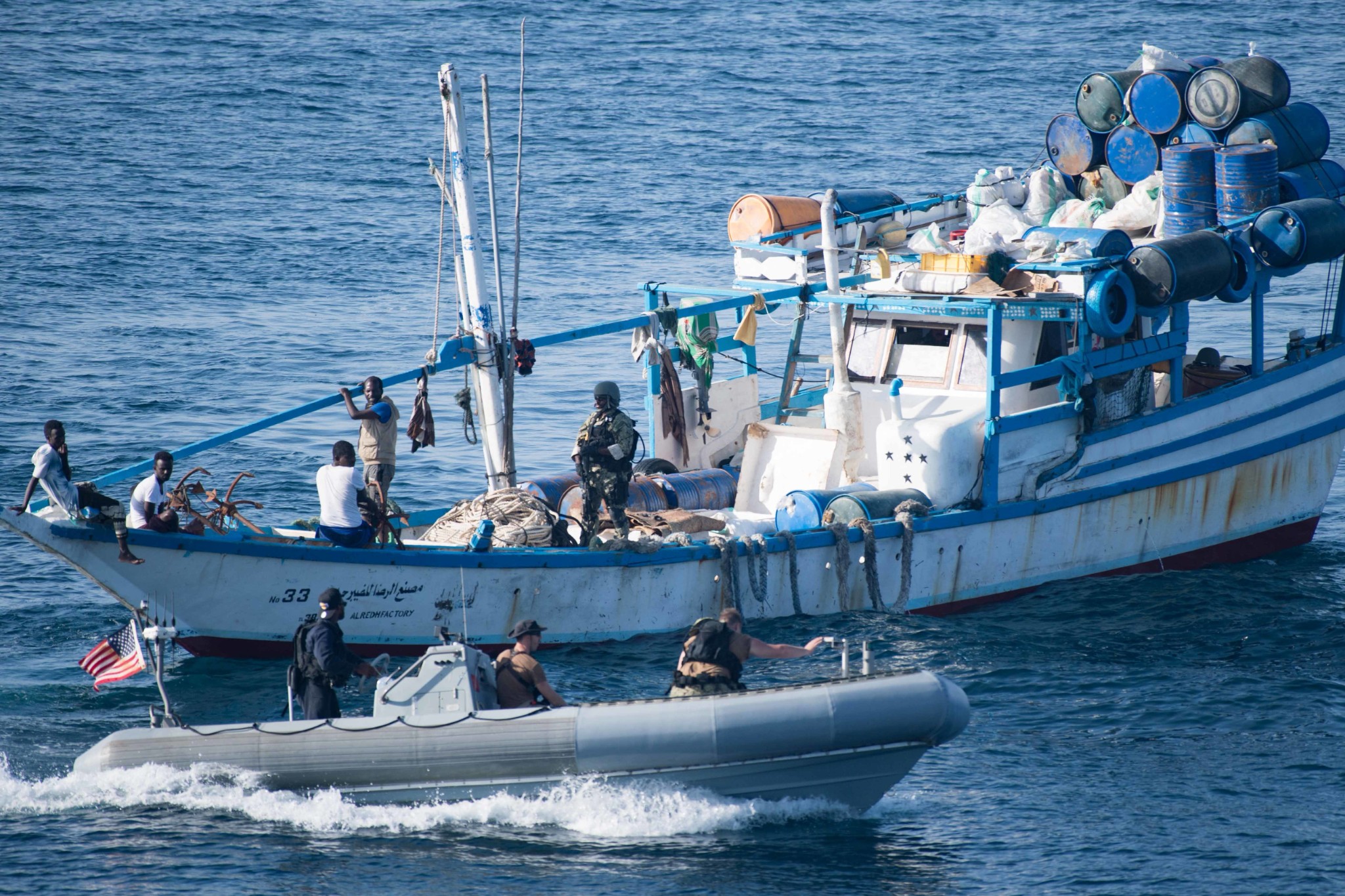 (U.S. Navy photo by Chief Mass Communication Specialist Matthew R. White/Released)
(U.S. Navy photo by Chief Mass Communication Specialist Matthew R. White/Released)
The ocean covers more than 70% of the Earth, with more than 80% unexplored. The ocean is vital for many earth processes, including weather and climate, and it is rich in natural resources essential for human survival. Fish account for 17% of the animal protein consumed by the global population and overall provide about 3 billion people worldwide with nearly 20% of their animal protein. Further, about 12% of the world’s population—over 870 million people—depend on fisheries and aquaculture to support their livelihoods. However, fish populations and marine ecosystems are increasingly at risk of exploitation and degradation. Overfishing, climate change, ocean acidification, and habitat degradation threaten already fragile marine ecosystems.
The pressure on the world’s oceans is increasing as global populations rise and technology for exploration advances. Due to modern technology, industrial fishing fleets can fish for extended periods in more remote locations. This technology also facilitates transnational organized criminal activity at sea due to the ease of evading detection and divergent ocean governance structures.
Maritime security refers to maritime or oceanic issues related to national security--marine ecosystems, economic development, and human and food security. Maritime security includes the world’s oceans and regional seas, territorial waters, rivers, and ports.
The issues related to maritime security include illegal, unreported, and unregulated (IUU) fishing and transnational organized crimes: piracy; armed robbery at sea; human, drug, and weapons trafficking; and marine pollution. Maritime security is often global and characterized as being cross-jurisdictional. Due to the challenges of governing global resources, the strategies to protect and secure oceans require collaboration amongst coastal States. In addition, there must be effective international policy with backing from multi-State coalitions to support enforcement mechanisms with solid monitoring, control, and surveillance.
United Nations Law of the Sea
The United Nations Convention on the Law of the Sea (UNCLOS) defines the international parameters for managing all marine and maritime activities. Under UNCLOS, coastal nations have jurisdiction over the natural resources within their Exclusive Economic Zones (EEZs), which extend up to 200 miles offshore. How coastal countries govern the marine resources in these zones may look different; it is ultimately the coastal nation’s responsibility to manage the resources within their EEZs.
The U.S. is party to several effective international agreements to combat IUU fishing, including regional fisheries management organizations (RFMOs) and the Port State Measures Agreement (PSMA). Underpinning international agreements about the ocean is the UNCLOS, which remains unratified by the U.S. However, U.S. forces regularly enforce freedom of navigation principles enshrined in UNCLOS. Every Chairman of the Joint Chiefs of Staff since the adoption of the convention in 1982 has supported its ratification. Ratification of the UNCLOS would strengthen U.S. maritime policy and influence abroad.
 (U.S. Navy photo by Cryptologic Technician (Collection) 3rd Class Joseph Dioso/Released)
(U.S. Navy photo by Cryptologic Technician (Collection) 3rd Class Joseph Dioso/Released)
Illegal, Unreported, and Unregulated Fishing
Illegal, unreported, and unregulated (IUU) fishing activity threatens marine ecosystems by undermining efforts to manage fisheries and conserve marine biodiversity sustainably. Due to challenges in identifying, detecting, and quantifying the scope of IUU practices, this problem has proved difficult to combat.
IUU fishing exacerbates poverty, threatens livelihoods, and fosters food insecurity. These impacts are especially detrimental to developing countries that rely heavily on marine ecosystems for subsistence and employment. Resources derived from IUU fishing are typically exported away from communities already at the margins of society and into developed countries. Once the illegal catch is brought to shore and processed, the fish products are shipped and sold in overseas markets. Between 20-32% of wild-caught seafood in the United States of America is illegal.
Not only does overfishing from illicit actors exacerbate food insecurity, but it also subjects marginalized communities to human rights abuses within the fishing industry, including substandard working conditions and human trafficking. IUU fishing activities pose a significant national security threat by fostering other illicit activities such as money laundering, drug smuggling, illegal arms dealing, and other transnational organized crimes. In 2020, the U.S. Coast Guard identified IUU fishing as the leading global maritime security threat due to the expected deterioration of government authority within fragile coastal states and increased tension between fishing nations. Without U.S. and international efforts to stop illegal fishing, the tension among fishing nations could threaten geopolitical stability worldwide.

 (U.S. Navy photo by Chief Mass Communication Specialist Matthew R. White/Released)
(U.S. Navy photo by Chief Mass Communication Specialist Matthew R. White/Released) (U.S. Navy photo by Cryptologic Technician (Collection) 3rd Class Joseph Dioso/Released)
(U.S. Navy photo by Cryptologic Technician (Collection) 3rd Class Joseph Dioso/Released)



